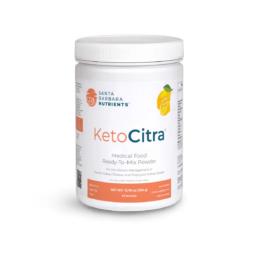In Greek mythology, Clotho, one of the three Fates, spun the threads of human life, intricately weaving destiny and lifespan into every fiber. Inspired by this symbolism, scientists named an essential human protein “Klotho.” This protein plays a vital role in regulating aging, kidney health, and cardiovascular functions. Klotho, predominantly produced by the kidneys, interplays with multiple physiological processes, offering a fascinating field of study and potential therapeutic intervention in chronic kidney disease (CKD) and vascular calcifications. In this blog, we will discuss the role of Klotho in kidney health.
By Majd Isreb, MD, FACP, FASN, IFMCP
What is Klotho?
Klotho is a group of proteins that span across cell membranes. They function as “co-receptors” to various fibroblast growth factors (FGFs). Since the discovery of the Klotho gene in 1997, there have been many breakthroughs in the understanding of these proteins.
There are also soluble forms of Klotho that can be present in the systemic circulation. These soluble forms can act as endocrine “hormones” with many functions. They have been found to have antioxidant and anti-inflammatory properties. In addition, they have been found to prevent tissue fibrosis.
Deficiency in alpha-Klotho, which we will describe from here on as Klotho, has been linked with features of aging, kidney disease, vascular calcifications, and cardiovascular disease.
The role of Klotho in kidney health
A deeper understanding of Klotho’s function begins with its role in the kidneys, where it helps maintain mineral balance. Phosphate plays a vital role in many physiological processes. Maintaining its balance is essential for bone health, energy production, and cellular functions. At the center of phosphate regulation is the Klotho.
Klotho functions as a co-receptor for fibroblast growth factor 23 (FGF23), a bone-derived hormone. This partnership between Klotho and FGF23 is intrinsic to the fine-tuning of phosphate balance.
When phosphate levels are elevated, FGF23 levels rise, prompting the kidneys to excrete more phosphate. For FGF23 to act effectively on the kidneys, the presence of Klotho is indispensable. They synergize to activate a signaling pathway that regulates the reabsorption of phosphate in the kidneys. Without adequate Klotho, this mechanism becomes inefficient, resulting in phosphate retention and potentially leading to hyperphosphatemia (elevated serum phosphate levels).
In the context of CKD, Klotho expression often decreases, leading to increased serum phosphate levels. This imbalance can contribute to vascular calcification and other complications associated with CKD.
Klotho and vascular calcifications
Vascular calcification is a common complication in CKD and is a significant predictor of cardiovascular morbidity and mortality. Research has linked Klotho deficiency to vascular calcification, particularly in the CKD context. Increased phosphate levels can drive calcium buildup in blood vessel walls, a condition exacerbated by the kidneys’ reduced ability to produce Klotho in CKD patients.
Klotho can serve as a protective agent. By inhibiting phosphate uptake by vascular smooth muscle cells and promoting phosphate excretion via its interaction with FGF23, Klotho mitigates the triggers of vascular calcification. This important function, seen in animal models, presents a promising therapeutic target for managing CKD-associated vascular calcification.
The antiaging properties of Klotho
The benefits of Klotho go beyond kidney and vascular health. There have been many research studies that found that it has tumor-suppressive properties, anti-inflammatory activities, antioxidant benefits, and anti-diabetic actions. In addition, Klotho has been associated with cognitive deficit disorders such as Alzheimer’s disease.
Factors affecting Klotho expression
Various factors can influence Klotho’s expression, both positively and negatively. Aging, inflammation, oxidative stress, and certain medications have been associated with decreased Klotho expression. Conversely, some interventions, such as exercise and caloric restriction, can potentially increase Klotho expression.
Vitamin D can also increase the expression of Klotho. In addition, a natural chemical compound called Ligustilide has been found to increase circulating soluble Klotho. Understanding these dynamics may offer ways to manipulate Klotho levels for therapeutic benefit, especially in CKD. Interestingly, even FGF23 itself can lower Klotho’s expression.
Many medications have also been found to increase Klotho.
Join us to end the kidney disease epidemic
Optimizing Klotho for better kidney health
Many factors can help optimize the levels of Klotho to improve the outcome of kidney disease. These may also be “anti-aging” factors:
- Exercise: Many studies have demonstrated that exercise can increase the level of circulating Klotho. Regardless of the type of exercising, only 3 months have been documented to increase the levels of Klotho.
- Optimizing vitamin D level: Vitamin D supplementation has been found to normalize Klotho levels in children with mild to moderate CKD. Many animal studies have also shown that vitamin D can enhance the expression of Klotho.
- Limiting phosphate intake: Higher phosphate intake is the major stimulus for the production of FGF23 by the bone. Higher FGF23 levels decrease the expression of Klotho. Therefore, limiting phosphate intake from ultra-processed food can improve Klotho levels.
- Diet: Caloric restriction and intermittent fasting have been found to enhance the expression of Klotho. In addition, food that is high in Ligustilide, such as wild celery, can increase Klotho.
- Various supplements were also found to increase Klotho. These include resveratrol, ginseng, astaxanthin, baicalin, cordyceps, and curcumin.
The myth of Clotho: Spinning the thread of life
Just as the Greek Fate Clotho spun the thread of life, determining each individual’s destiny and lifespan, Klotho, in its physiological role, impacts our health and longevity. The similarity goes beyond their shared responsibility for life’s thread; neither can be fully controlled. Clotho’s threads were immutable, not even subject to the will of the gods. Similarly, the science of Klotho is complex, and its manipulation challenging, though potentially rewarding.
The bottom line
Much like Clotho’s threads, the intricate roles of Klotho continue to be unraveled by researchers. From regulating kidney health to potential implications in mitigating vascular calcifications, Klotho holds a significant place in our physiological understanding. As our knowledge deepens, so too does the promise of leveraging this protein for therapeutic interventions, offering a potential lifeline to those battling chronic kidney disease and associated complications.








